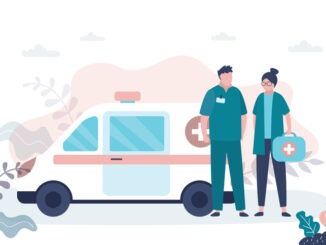
In recent years, the landscape of general practice in the UK has undergone significant transformations, sparking debates and raising concerns among stakeholders. The British Medical Association (BMA) has warned of a concerning trend: the potential replacement of General Practitioners (GPs) by staff in other roles within primary care teams, particularly those recruited through the Additional Roles Reimbursement Scheme (ARRS)
CREDIT: This is an edited version of an article that originally appeared on GP Online
Promises made by the government, such as an additional 6,000 GPs in general practice, along with the recruitment of 26,000 ARRS staff and the commitment to provide 50 million more appointments, have fallen short of expectations. While the ARRS recruitment targets were purportedly met ahead of schedule, the goal of increasing the GP workforce remains elusive.
Evidential gaps and decreasing GP numbers
Critics point to evidential gaps, citing a decrease of nearly 1,000 fully qualified full-time equivalent GPs in England since the introduction of the ARRS in 2019. Meanwhile, the surge in ARRS staff, totalling over 30,000, significantly contributes to the claimed increase in appointments. This shift has led to GPs handling a lesser share of overall appointments, currently at 46%, down from 52% in the year leading up to the pandemic.
Challenges in funding allocation
The disparity in funding between GPs and ARRS staff has raised concerns about the sustainability of primary care delivery. GPs find themselves burdened with additional responsibilities as they supervise an influx of non-GP staff, exacerbating stress and burnout. With the patient-to-GP ratio soaring to 2,298 patients per fully-qualified GP, worries abound about GPs taking on more responsibility and being held accountable for errors.
Despite calls from the BMA to allow ARRS funding for GP recruitment, the government has remained steadfast in its stance. However, there is hope that increased funding, potentially recommended by the Doctors and Dentists Review Body (DDRB), could alleviate staffing pressures. Additionally, Labour has hinted at addressing GP retention issues if elected, underscoring the urgent need for sustainable solutions.
Amidst the impending general election, GPs are rallying for public support and investment in the profession. They seek to address funding disparities and ensure the sustainability of primary care delivery in the UK. As the debate rages on, it is imperative for stakeholders to come together and navigate the challenges facing general practice, charting a path towards a resilient and efficient healthcare system for all.


Be the first to comment